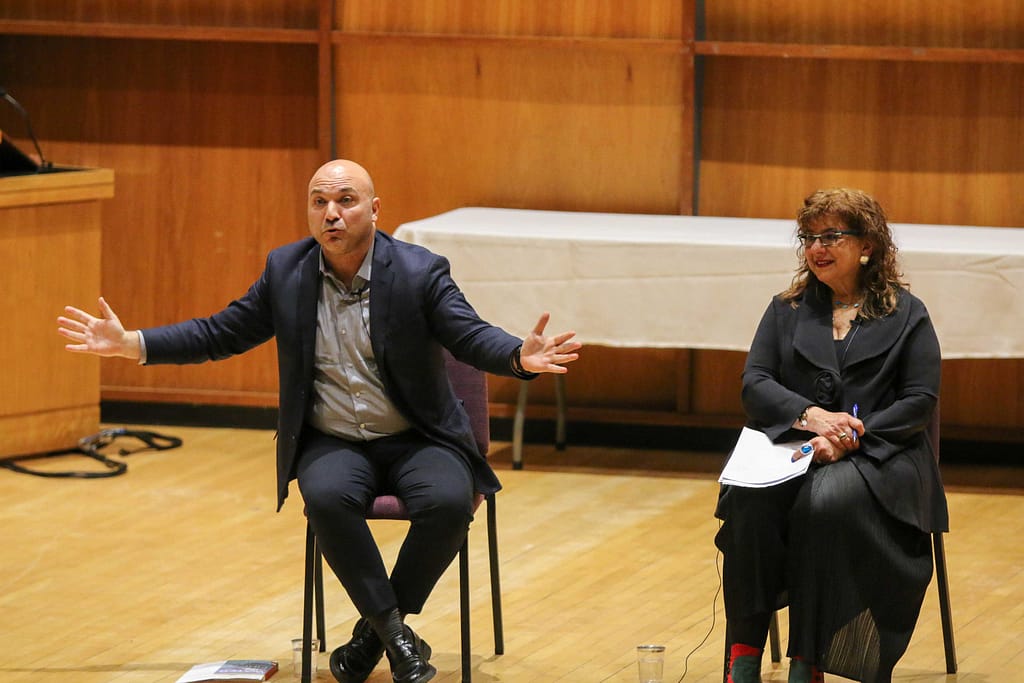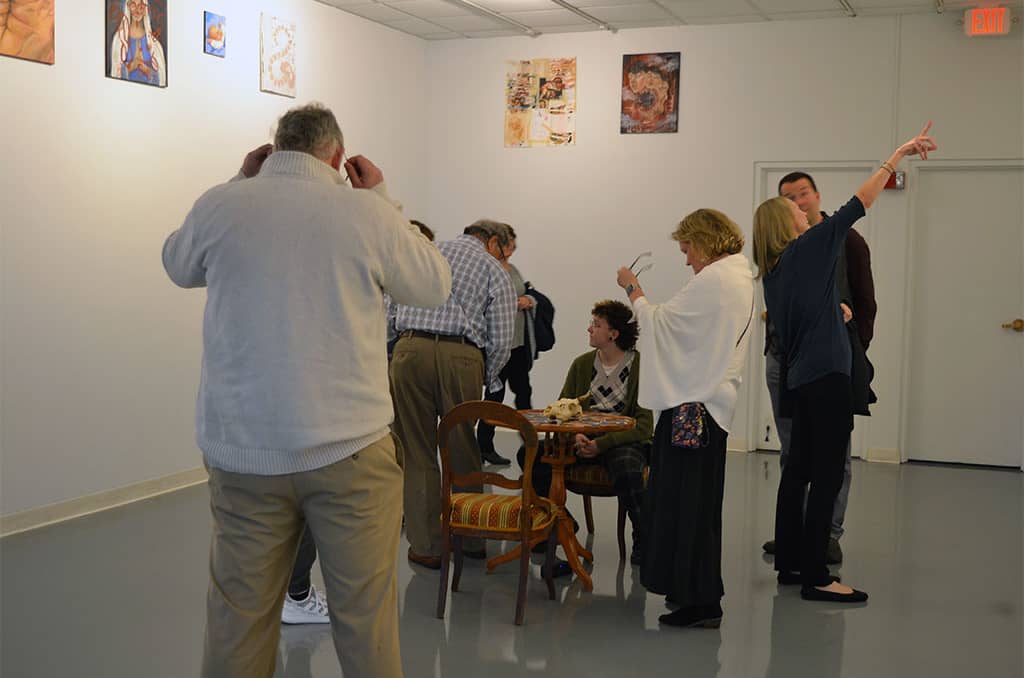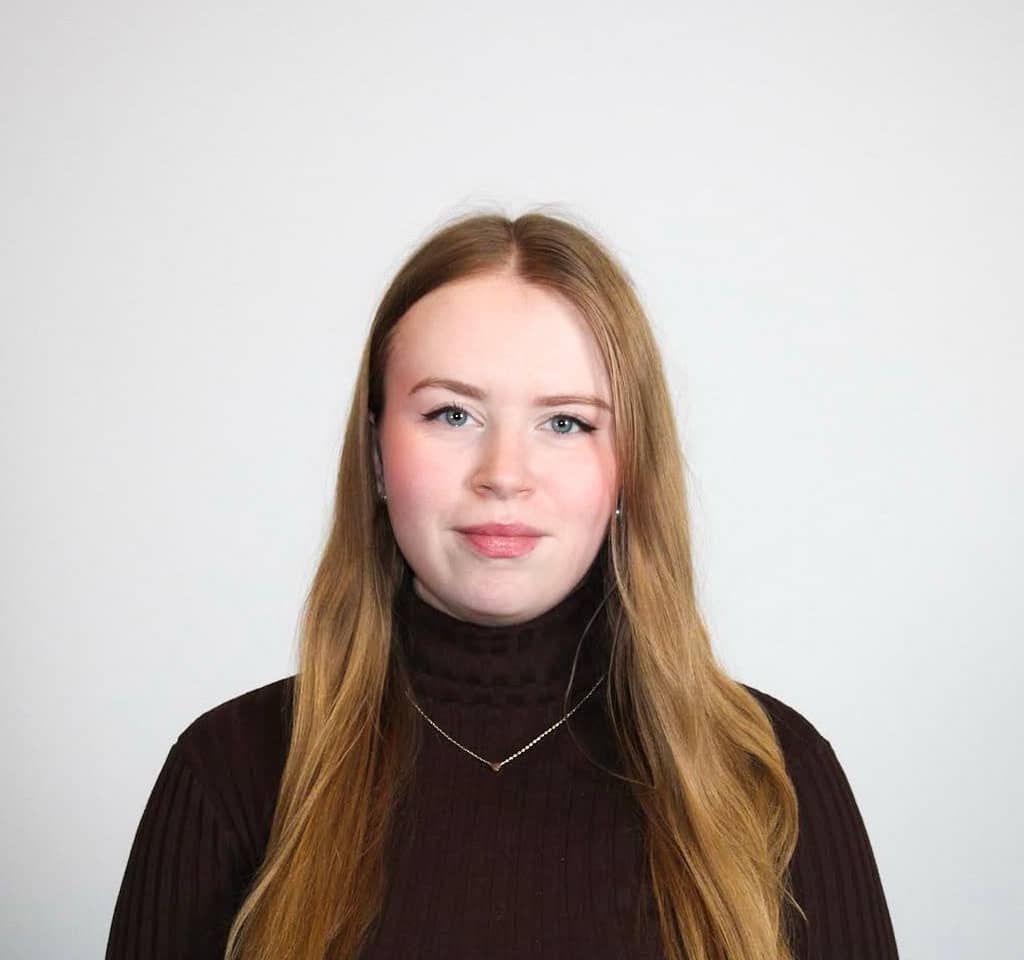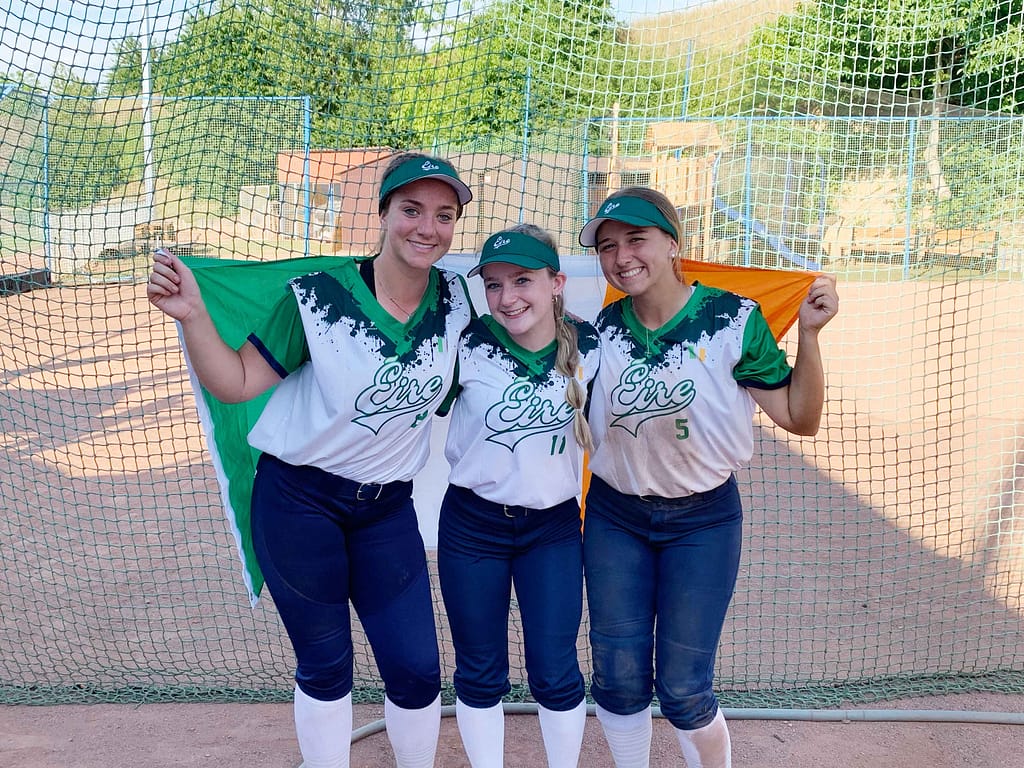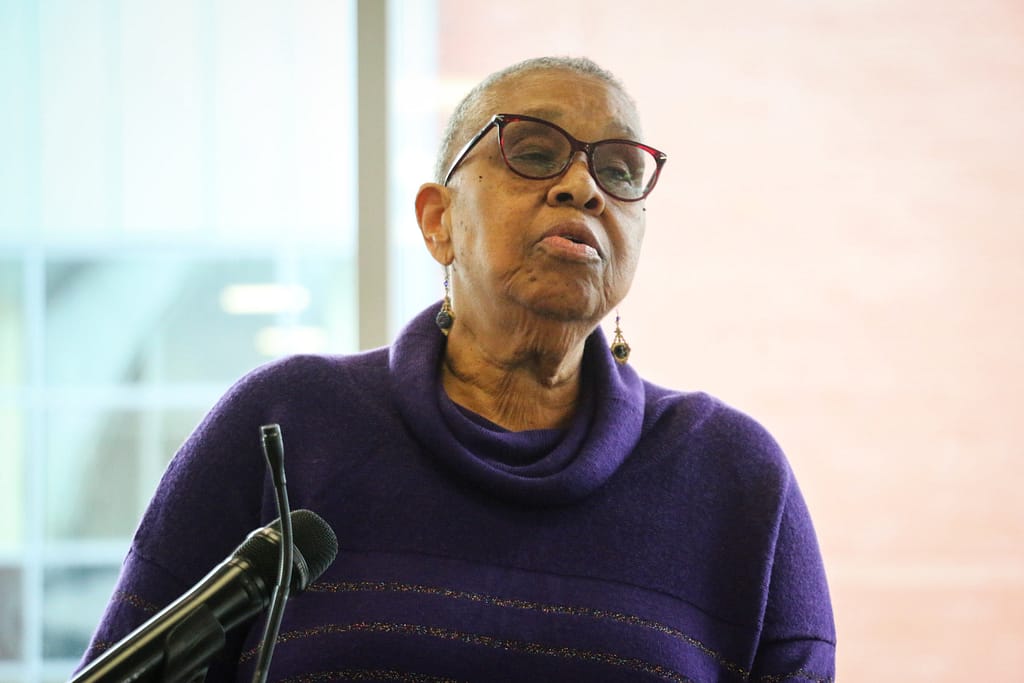Writer-poet leads series on marginalized

J Mase III speaks in the Roy Event Room of Dion Family Student Center Wednesday evening in the above photo; below, students respond to the presentation. (photos by Danielle Joubert ’20
On Wednesday evening, students and faculty gathered in the Roy Room at the Dion Student Center for the final session of a three-part educational series by guest speaker J Mase III on issues affecting marginalized people. “The Solidarity Framework: An Intersectional Approach” offered a conclusion to Tuesday’s back-to-back sessions titled “How I Survived the Gay Rights Movement as a Trans Person of Color” and “The Bible: The Queerest Book I Ever Read.” The event was sponsored by the campus group Common Ground.
J Mase III is a Black/Transgender/Queer writer, educator, and poet based in Seattle, Washington. His educational work focuses on addressing the needs of LGBTQIA people in K-12 schools, colleges, universities, faith groups, and other institutional spaces. He is the founder of awQuard, a talent agency catering to trans and queer people of color, and the author of “If I Should Die Under the Knife, Tell my Kidney I was the Fiercest Poet Around” and “And Then I Got Fired: One Transqueer’s Reflections on Grief, Unemployment, and Inappropriate Jokes about Death.” He has been featured on platforms such as NCB, OUT, Buzzfeed, the New York Times, and The Huffington Post.
Wednesday night’s session was about defining solidarity and challenging students to plan their own paths to accountability. Mase’s style focused heavily on audience engagement through call and response, answering questions, and sharing experiences. His easy, encouraging demeanor gave the sense of a comfortable classroom experience rather than a lecture event. But while the session created a unique ease of conversation, its subject matter was aimed to highlight and embrace that which is difficult about seeking justice: namely, the willingness to take action despite real cost.
“If you are not ready to give something up, you’re not able to be in solidarity with people,” said Mase while working with the audience to define the difference between “allyship” and solidarity. The audience was called upon to consider what personal sacrifices they might need to make to enact real change. Mase explained the importance of leveraging privilege to take the first step in redistributing power and resources. “Maybe it means that someone decides not to take a leadership position. Maybe it means we advocate for pouring money or resources into another community or organization that doesn’t get as many resources as ones that are largely run by able-bodied, white, cisgender people.”
Mase tackled social justice from diverse angles and brought to light complex intersections of marginalized identities: How might the experience of being LGBTQIA look different for people of color, people without access to wealth, or people with disabilities? How might certain identities be undervalued on campus while also being exploited? How do we shape our activism to make sure that it includes all people and accounts for how different forms of marginalization overlap and present unique challenges?
Much of the conversation centered on economics, including issues of colonialism and colonial debt, income inequality vs. wealth inequality, the exploitation of other countries by the West, and the devaluation of the labor of people of color. The best approach to injustice from a place of privilege, Mase emphasized, is willingly relinquishing power or advantage. “Solidarity is being more invested in justice than your comfort,” he said.
The audience was asked to take 10 minutes to write about the form of privilege they possess that they find the most uncomfortable to talk about. After some discussion, they were asked to take another 10 minutes to write out a specific plan for reaching out in solidarity and holding themselves accountable. Mase asked the audience to be specific about what they might have to give up to make meaningful change. “That piece about loss is largely, usually, why we haven’t done something already, so it’s really important for us to name that,” he said.
Audience members were left with a better understanding of the complexity of social justice not only in the world at large, but on campus at Saint Michael’s College. Mase provided tools for bettering activism in our community and challenging ourselves to do better by our marginalized students despite personal cost. As Mase suggested, that often starts with listening. “Oftentimes we think we’re the best person to explain an issue because we’re just so smart and so wonderful, but the person experiencing it, I guarantee you, has a much better language. Whether or not you respect that language, they have a much better language for what’s actually happening.”
